Panel Speakers
Plenary Panel I
Feedback System in the Tropics
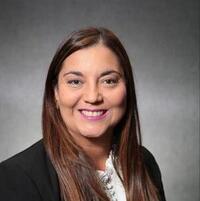
Grizelle González
Grizelle started working at the U.S. Department of Agriculture, U.S. Forest Service, International Institute of Tropical Forestry (the Institute) in 2000. At the Institute, she has served in roles as a Postdoctoral Scientist, Research Ecologist, Director of the Sabana Field Research Station, R&D Project Leader, Assistant Director for Research and currently serving as Institute Director. As the R&D Lead at the Institute, she has helped guide the science, administration and communication of research related to Tropical Forests and Grasslands currently occurring in over 10 countries, and in collaboration with more than 45 Institutions and 150 scientists. She represents the Institute in interactions with the Regions, Stations, and external partners, helping to shape the research agenda, budgetary decisions, safety procedures, communicating results to partners and the public and contributing to the coordination of national and international research efforts.
Dr. González is member of the editorial boards of the Caribbean Journal of Science, the Caribbean Naturalist, Forests, and Frontiers in Forests and Global Change (section Forest Disturbance). Grizelle is also a supporter of arts and science collaborations, and believes science is central for the sustainable development, and resiliency of tropical America. She became a certified forest therapist in August 2020. Dr. González holds a Ph.D. from the University of Colorado-Boulder in Biological Sciences; a M.Sc. Degree in Biology; and a B.Sc. in Biology from the University of Puerto Rico.
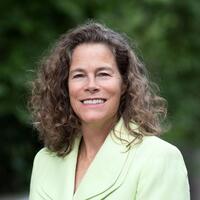
Deborah Lawrence
Deborah Lawrence is an Environmental Sciences professor at the University of Virginia, where she conducts global forest and climate research. She is also the Chief Scientist at Calyx Global, an independent provider of ratings and other carbon market analytics for the rapidly growing carbon market. Her research focuses on the links between tropical deforestation and climate change. She has spent the past 25 years doing field-based research in Indonesia, Costa Rica, Mexico and Cameroon. Most recently, she has been using global climate models to explore the cumulative effect of tropical land use decisions, exploring the climate impact of land allocation among food crops, biofuels and forests across the globe.
Previously, she was a science advisor to the US Department of State, Office of Global Change (the international climate change policy and negotiations unit). She later helped establish SilvaCarbon, a US federal interagency program for forest carbon measurement and monitoring. Deborah has also served on the Technical Committee on Agriculture, Forestry and Other Land Use at the American Carbon Registry. She received a BA in Anthropology from Harvard University, and a PhD in Botany from Duke University. Deborah’s favorite activities include tending to her climate-forward backyard, where she must constantly defend her beloved chickens from foxes.
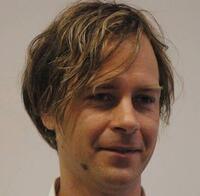
Simon Lewis
Simon Lewis is a Professor of Global Change Science, at both University College London and the University of Leeds. HIs main research interests are to understand how humans are changing the Earth system, with a focus on the topics and the global carbon cycle. He is interested in net zero plans, negative emissions, and greenwash by governments and companies. His team’s scientific discoveries include the globally significant carbon sink in intact tropical forests, the evolution of the carbon sink; and the world’s largest tropical peatland complex in central Congo. He co-founded and co-manages the African Tropical Rainforest Observatory (www.afritron.net). In 2018, he published, with Mark Maslin, The Human Planet: How We Created the Anthropocene (Penguin), and exploration of the science, history and politics of the Anthropocene, an Observer book of the year and shortlisted for the Azimov Prize.
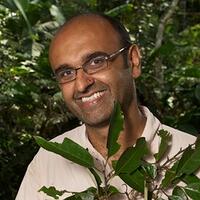
Yadvinder Malhi
Yadvinder Malhi CBE FRS is Professor of Ecosystem Science at the Environmental Change Institute, School of Geography and the Environment, and Senior Research Fellow at Oriel College. Professor Malhi explores the functioning of the biosphere and its interactions with global change, including climate change. He has a particular fascination with and love for tropical forests, though he has recently been spotted in ecosystems ranging from savannas, the Arctic, tropical coral reefs and Oxfordshire’s woodlands and floodplain meadows. He looks at how natural ecosystems may be shifting in response to global atmospheric change, and how protecting or restoring natural ecosystems can help tackle climate change, and help adaptation to the consequences of climate change.
His team at the Environmental Change Institute is known for collecting intensive field data from fascinating but sometimes tough and remote forests. They have ongoing programmes of research in Asia, Africa, the Amazon and Andes regions, and Oxford’s own Wytham Woods. A new recent focus has been on nature recovery and biodiversity restoration in the UK. While addressing fundamental questions about ecosystem function and dynamics, his research findings are significant for conservation and adaptation to climate change. He is a Trustee of the Natural History Museum of London, President-Elect of the British Ecological Society, chairs a number of programmes on biodiversity at the Royal Society, and is a scientific advisor on nature restoration for the UK government and the government of Scotland.
He leads an active Ecosystem Dynamics research lab focussing on forest vegetation-atmosphere interactions, employing field studies, satellite remote sensing and ecosystem modeling.
Plenary Panel II
Forest Dependent Livelihoods: Climate Change Impacts and Adaptations
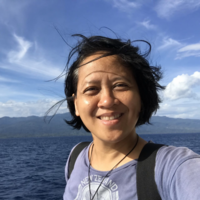
Agnu (Intu) Boedhihartono
Intu has a multidisciplinary background (Anthropology, Fine Arts, Cinematography and Natural Sciences). She has a Doctorate in Ethnology & Visual Anthropology from the University of Paris 7, France. She went to the Ecole National Superieure des Beaux-Arts and the University of Paris 7 in France to pursue her passion in arts, culture, people and sciences. Intu worked for the International Union for Conservation of Nature (IUCN) and the United Nations Environment Program (UNEP) based in Switzerland, but she devoted a lot of time in Africa and SE Asia. She spent several years working in the Malinau Research Forest region in North Kalimantan, Indonesia, with the Center for International Forestry Research (CIFOR). Intu joins UBC after spending eight years running a Master’s Program in Development Practice at James Cook University in tropical northern Australia.
Intu has worked with multidisciplinary teams in remote locations in tropical landscapes and seascapes in Asia, Africa and Latin America. Intu has focussed on issues with indigenous people and local communities, particularly on the importance of their traditional knowledge and wise practices in natural resources management and the conservation of their cultural diversity. Intu’s research has sought to enable forest dependent people, coastal communities and indigenous groups to achieve a balance between conservation and social, cultural and economic development.
Intu uses visual techniques to explore landscape scenarios and other participatory methods to maximize the involvement of diverse stakeholder groups. Her goal is to have an influence on global efforts to support indigenous people and local communities to improve their livelihoods whilst retaining their identity, cultural diversity, traditional knowledge, environment and natural assets.
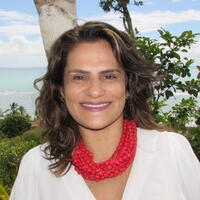
Andrea Azevedo
Dr. Andréa Aguiar Azevedo, currently works as Director of Programs and Projects of the JBS Fund for the Amazon. She has idealized, raised funds and coordinated several projects in most states of the Amazon for the last 15 years, publishing more than 30 technical and scientific studies, with article highlights on Science and PNAS magazines. She holds a broad experience in the analysis of public environmental policies which control the use of natural resources in the Brazilian Amazon, especially regarding deforestation. It is worthy of note that she also has extensive experience working with multi stakeholder groups jointly with the private sector. Holding a degree in Biological Sciences and a Master degree in Economic Management of the Environment, she also holds a PhD in Sustainable Development from the University of Brasília (UnB) as well as an Executive MBA degree from Fundação Dom Cabral. Andrea is a board member of Conservation International – Brazil and of Amazon Concertation.
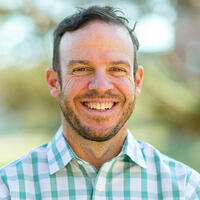
Brendan Fisher
Dr. Brendan Fisher is the Director of the Environmental Program, a Professor in the Rubenstein School of Environment and Natural Resources and a Fellow of the Gund Institute for Environment at the University of Vermont. His research and fieldwork lie at the nexus of conservation, development, natural resource economics and human behavior. He is the author of close to 100 peer-reviewed articles and two books, Valuing Ecosystem Services (Earthscan, London, 2008) and A Field Guide to Economics for Conservationists (Roberts and Company, 2015). In 2013 he was a Rockefeller Foundation Bellagio Fellow. In 2021-2022 he was a Fulbright Fellow working in Spain on socio-ecological systems in the Spanish Pyrenees. He loves living in Vermont and enjoying the Vermont outdoors with his wife and three children. He is currently working to improve is inability to correctly identify warblers.
Plenary Panel III
Sustainable Development and Tropical Forests
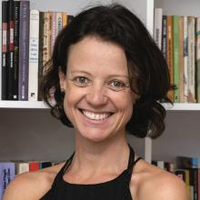
Fabíola Zerbini
Fabíola Zerbini’s work in the socio-environmental field has been recognized for more than 25 years, especially in promoting value chains and catalyzing public-private partnerships for the economic, integrated and sustainable development of key Latin American territories concerning agriculture, forests and land use agenda. Fabíola holds a Bachelor’s degree in Law, a specialization in Education for Sustainable Societies (Esalq-USP) and a PhD in Environmental Science (Procam/USP). She has been executive director of multi-stakeholder coalitions, such as FACES do Brasil and FSC Brasil, acting on agendas as Fairtrade, Responsible Forest Management. More recently, she has worked as Latin America Director at Tropical Forest Alliance (TFA) – an alliance hosted by the World Economic Forum to eradicate the deforestation linked to commodity production and to build bridges among producers, buyers and players from the private sector, governments and the organized civil society, and now is the current Forest, land Use and Agriculture Director of WRI Brasil.
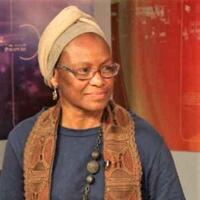
Milagre Nuvunga
I am a Mozambican citizen, born and brought up in Mozambique, and trained as a forester. After 15 years in government in positions that included Director of Forestry Research and National Director for Forestry and Wildlife in Mozambique, I worked internationally for 10 years, including with the UN in New York, supporting forestry work in African and Latin American countries, and the Ford Foundation, working on environment and community development issues in Eastern Africa. I moved back to Mozambique in 2008 as co-founder of the MICAIA family of institutions (comprising a Mozambican foundation and a social enterprise, as well as a UK based charity run by a volunteer board), where I serve as Executive Director of MICAIA Foundation.
My main professional interest is the development of approaches to strengthening community control over land and the natural resources that support local livelihoods, and ensuring women’s powerful participation in decision making, as well as engagement in gainful activities.
I am currently exploring governance arrangements that will bring communities and other actors (government/private sector) to adopt sustainable landscape development principles and inclusive business approaches, seeking a balance between conservation and local development objectives.
Interesting fact: I was the first female national director for forestry and wildlife in Africa.

Andika Putraditama
Andika leads the implementation and strategy development of Lestari Capital’s flagship initiative, the Rimba Collective. He brings over 10 years of experience working on sustainable land use issues and sustainable commodities in Southeast Asia. Prior to Lestari Capital, he served as the Deputy Program Director of the World Resources Institute Indonesia where he played a leading role in establishing WRI’s office in Indonesia, and managing WRI Indonesia’s agriculture, forest, and land use portfolio. This includes overseeing the development of satellite-based supply chain monitoring system, policy advocacy works on responsible supply chain, nature-based solution, climate-smart agriculture, as well as project design, proposal writing, and grant management. He is an awardee of USAID/CIFOR Master’s Degree Fellowship where he received his Master of Science in Forestry from the School of Forestry at Northern Arizona University with a published thesis on the deforestation impact of social forestry program in Indonesia.
ISTF 2023 Conference made possible by our sponsors
Cullman Institute

The Forest School
YSE Learning Communities
People, Equity, and the Environment
(1).png)